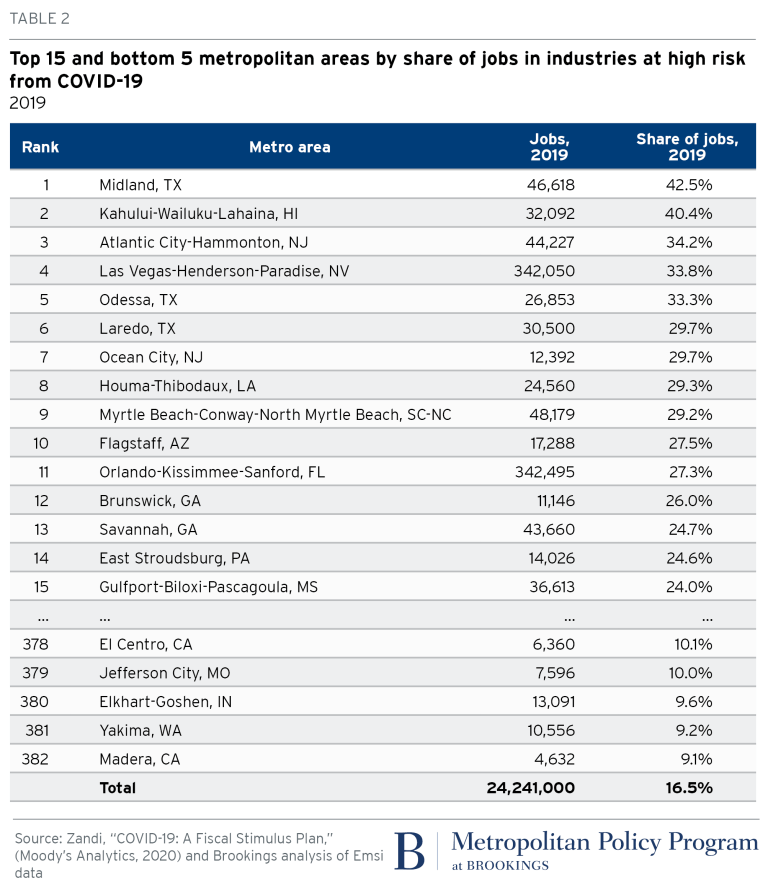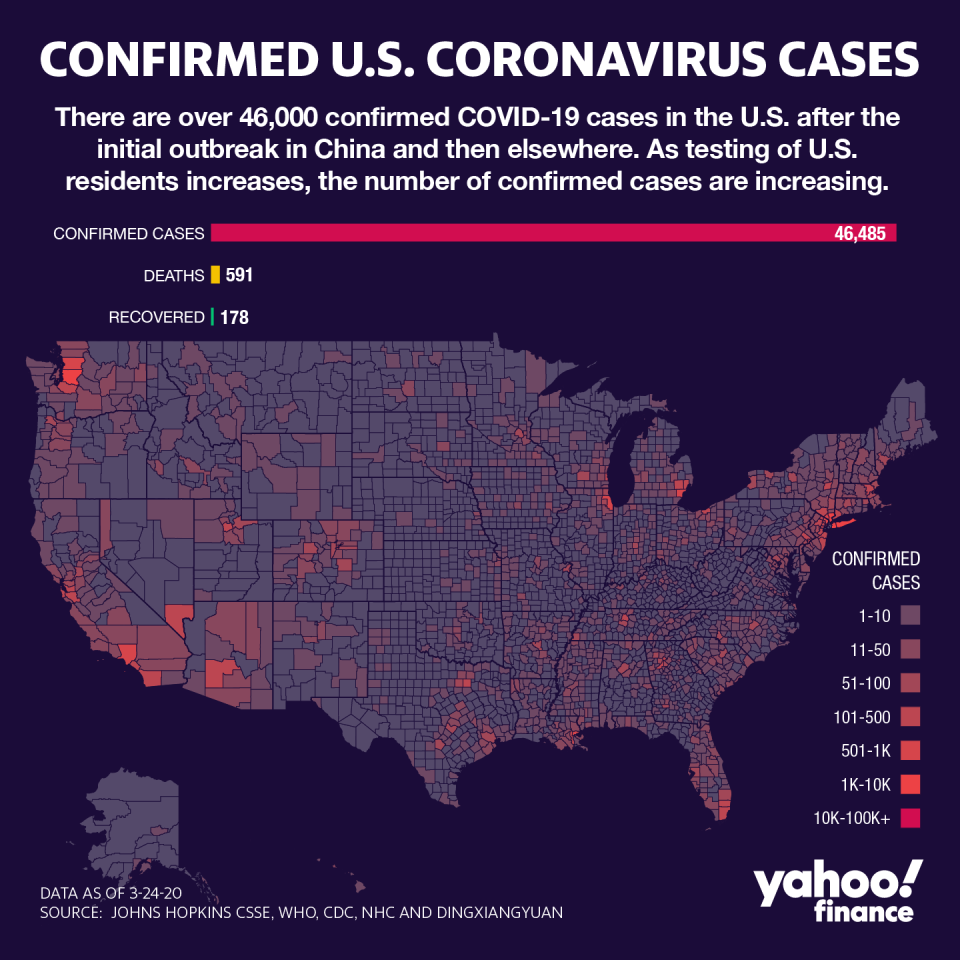Coronavirus recession to hit over 24 million workers hardest: study
Five industries will be particularly hard hit in the event of a coronavirus-caused recession, according to a new report from the Brookings Institution. And a recession caused by COVID-19 will impact 24.2 million American workers across the country.
Using analysis from Moody’s Analytics, Brookings studied the impact to workers in the mining/oil and gas, transportation, employment services, travel arrangements, and leisure and hospitality sectors.
Read more: What is a recession? Here are the basics
Industries most at risk
In total, these five vulnerable sectors accounted for 16.5% of all American workers, or 24.2 million employees in total. The leisure and hospitality industry has the plurality of workers among these five at-risk sectors, with some 16.3 million employed in this space. Workers in this industry represent just over 10% of all American workers.
Transportation and employment services represent roughly 5% of all workers combined, a total of some seven million.
But what’s more, the study found, is that given the workers’ concentration in some cities, the potential disruption to those industries will be felt unequally across the nation. More than 40% of the workers in just two cities are employed by these hardest hit sectors, while in another three cities, over 30% of the workers who live there are at risk.
“The most affected places are a who’s who of energy towns and major resort, leisure, and amusement destinations across the nation,” the report noted.

Workers in Midland, Texas, could be slammed by a coronavirus recession the most, as 42.5% of the workers there are employed in one of the five “most at-risk” industries. The metro area of Kahului-Wailuku-Lahaina, Hawaii, was second, with just over 40% of workers there working in the at-risk sectors. Rounding out the top five are Atlantic City-Hammonton, N.J.; Las Vegas-Henderson-Paradise, Nev.; and Odessa, Texas. More than 30% of the workers in these areas are employed in the most at-risk industries.
While workers in Midland and Odessa are employed in the energy sectors primarily, the leisure, hospitality, and travel industries are the biggest employers in the other metros among the top five.
Brookings noted other noteworthy tourist destinations in the U.S. like Ocean City, N.J., Myrtle Beach, S.C., and Flagstaff, Ariz., are also vulnerable.
“The same pattern holds across larger cities,” the report said. “Among the nation’s 100 largest metro areas, Las Vegas is most exposed, followed by Orlando, Fla., the theme park capital of the country. Rounding out the top five in this group are New Orleans, which has ties to both the energy and tourism/hospitality sectors, Honolulu, and Oklahoma City.”

Conversely, the Brookings report found, cities that are likely to be “least directly affected” by COVID-19 are “a diverse group consisting of older, manufacturing-heavy industrial cities, agricultural towns, and some already-distressed places.”
At the bottom of the Brookings list were the agricultural towns of Madera, Calif., and Yakima, Wash. With less than 10% of their workforces in the most-affected industries, the metros of Madera and Yakima are the two least exposed in the country.
Negotiating stimulus
Currently, the Senate is negotiating on a roughly $2 trillion stimulus package. Senate Democrats blocked the measure due to a lack of worker protections inside the bill.
The stimulus plan includes $500 billion in direct payments to people earning less than $75,000 a year, $350 billion in loans to small businesses, and another $500 billion to bailout hard-hit industries like airlines.
Extra funds would be allocated toward unemployment insurance expansion, drug development, and money for hospitals.
Kristin Myers is a reporter at Yahoo Finance. Follow her on Twitter.
Read more:
‘Senators shouldn’t own individual stocks’: Senator Cory Booker
Coronavirus hits Democratic communities harder than Republican counterparts
Trump’s coronavirus plan to cost over $800 billion, won’t help the poor: study
Look at Amazon, Visa, and other as markets tumble: strategist
Coronavirus to impact low-wage, black workers the most
Read the latest financial and business news from Yahoo Finance
Follow Yahoo Finance on Twitter, Facebook, Instagram, Flipboard, LinkedIn, YouTube, and reddit.

